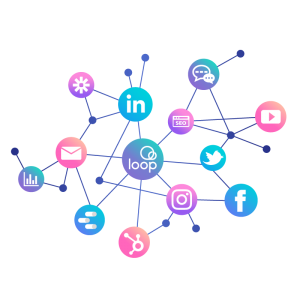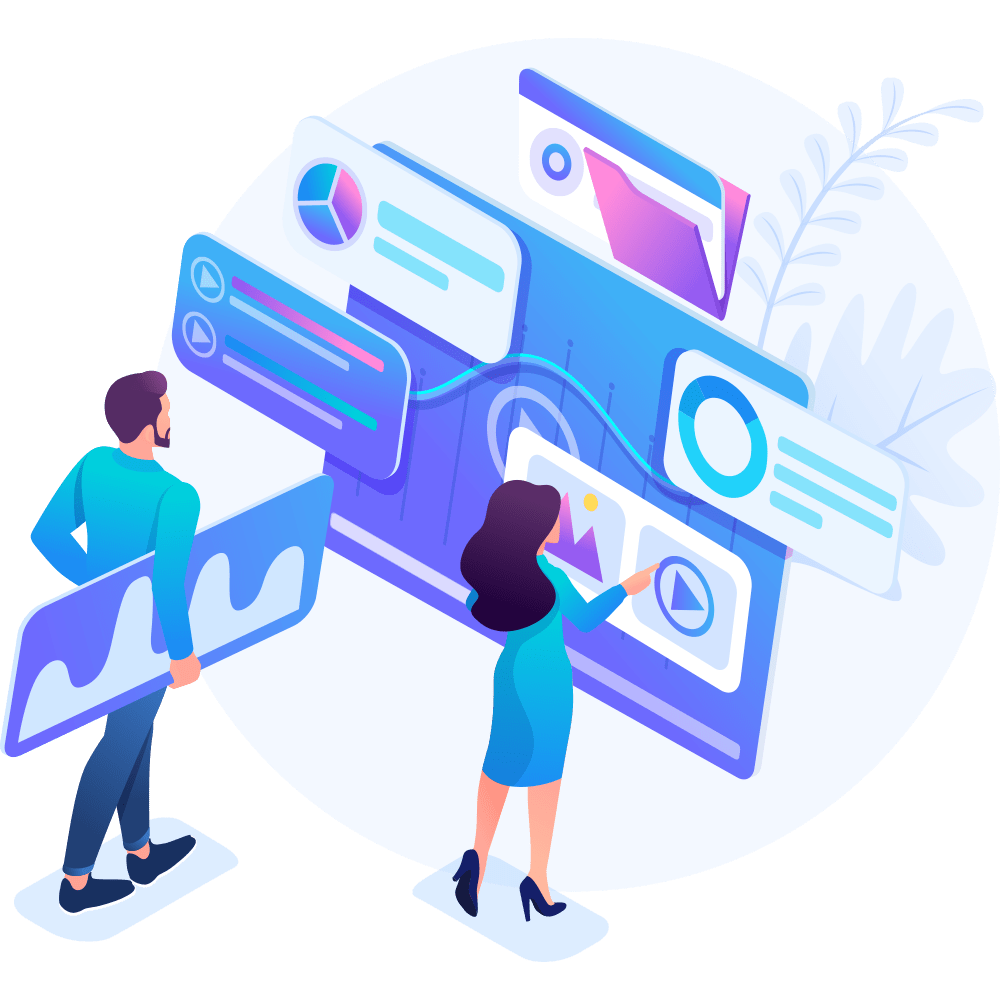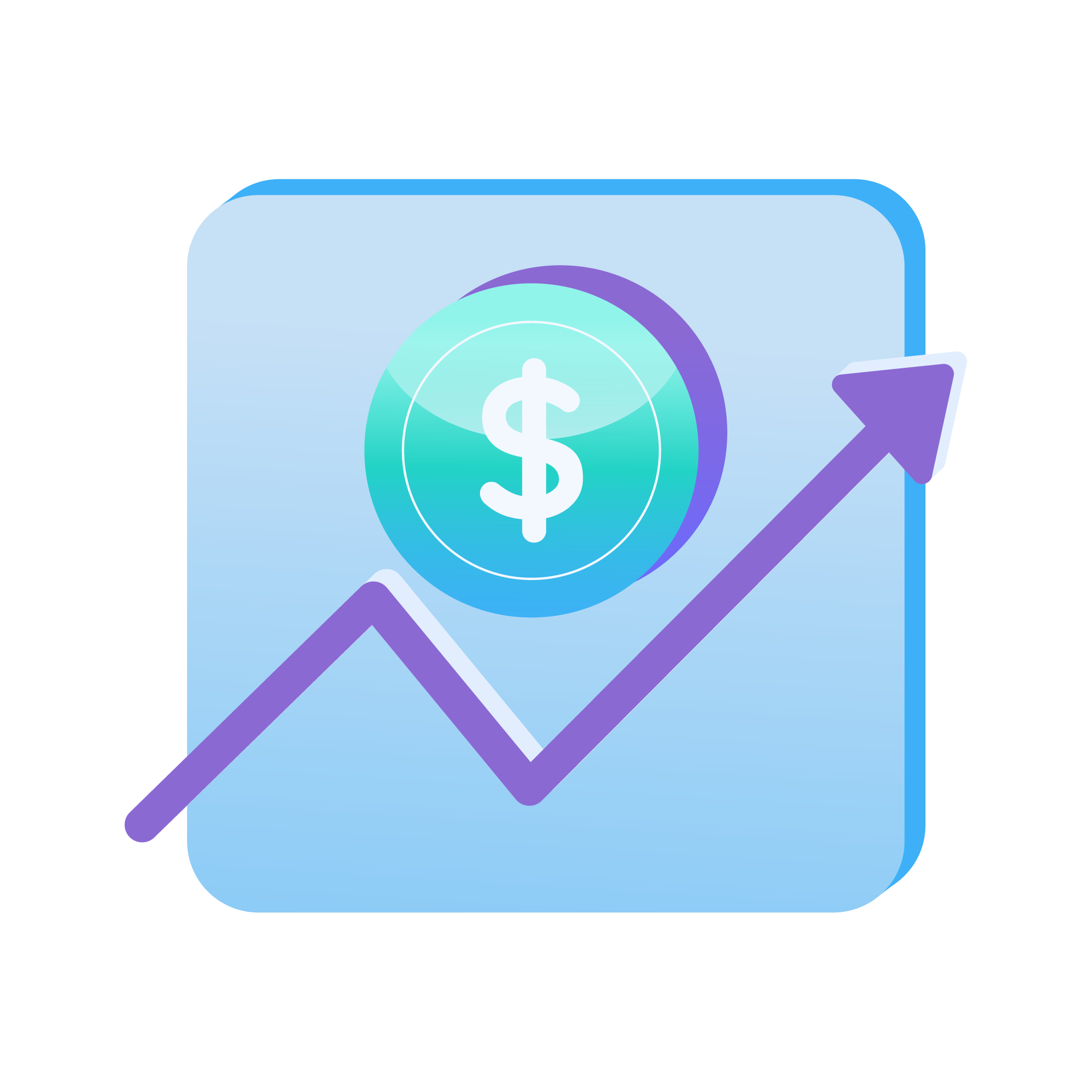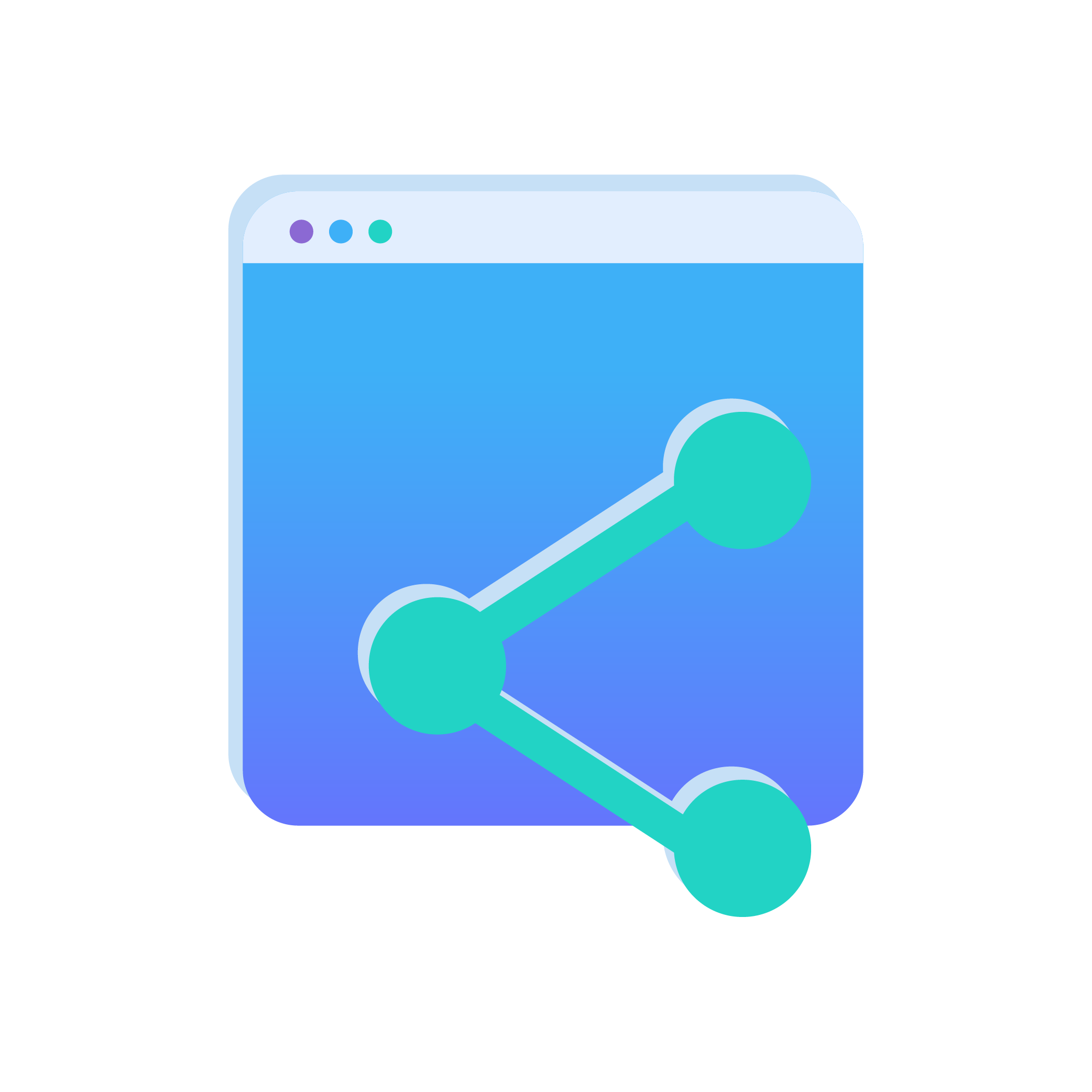Profit-Driven Marketing to Scale Your Business


Here's How We Help
Loop Strategic Marketing provides research-backed, systematic solutions to increase your revenue. We provide the knowledge, guidance, and execution needed to drive more sales to your business while increasing your ROI.


Your Digital Strategy Experts
From Google Ads to HubSpot software implementation, we are certified to implement your digital ops strategy from top-of-funnel to closed business.
We're educators, consultants, and
business builders
Want to know how we can help your business? Let's Chat!
Make your next campaign a hit with Loop.
A FULL SERVICE DIGITAL SERVICES AGENCY
Real Strategy
We use years of research and experience to craft profitable campaigns for our clients.
Data Driven Decisions
The numbers don't lie. We track your marketing analytics diligently to identify what is working and what needs work.
Not Just Marketing
We are a full digital operations agency. Our skillset goes far beyond digital marketing for a complete client experience.
Quantifiable Results
We back up our work with trackable results. We work with our clients to identify what they need for results, and work backwards from there.


Finding the right technology mix for every client.
Do you know what your business needs? Select your service below. If you’re not sure, thats fine too! We can take you through a needs analysis to identify the right marketing mix for where your business is at.


Marketing Strategy
We help you identify your ideal customer, and build a plan to reach them consistently.


Web Design
We build beautiful & effective websites that resonate with your customers and convince them to take action.


Paid Advertising
We build you a quick, systematic, and effective way to start driving more revenue to your business.


SEO
We build you a long-term & sustainable organic marketing funnel.


Branding & Content Creation
We help you deliver your message to customers in a consistent and impactful way.


Social Media Marketing
We target your ideal client and give them content that brings value.


THE RIGHT DIGITAL STRATEGY FOR EVERY INDUSTRY WE SERVICE
Our track record is proven in several industries.
- Healthcare & Medical Services
- Business-to-Business Services
- Residential Real Estate Agents & Brokerages
- Residential Service Businesses
- Restaurants & Retail
Frequently Asked Questions
How much does it cost to create a website per month?
The monthly cost of creating and maintaining a website can vary significantly based on various factors. These can range from the type of website, its features, chosen platform, hosting options, and whether you’re using professional services. On average, you could be looking at anything from $5 to over $500 per month. Here’s a breakdown to provide a clearer picture:
Hosting: This is where your website data is stored. Shared hosting can start as low as $3/month, while dedicated hosting or cloud solutions can cost $100+/month.
Domain Renewal: While purchasing a domain is typically an annual expense, its monthly equivalent would be anywhere from $0.50 to $5/month.
Maintenance & Updates: If you’re paying for regular content updates, software patches, or occasional design changes, this can range from $30 to $500/month, depending on the scale and frequency.
Premium Tools & Plugins: These can add features to your site, like SEO tools, security plugins, or e-commerce capabilities. Their costs can range from $5 to $100+/month.
SSL Certificate: Essential for e-commerce and sites that handle personal data. The monthly cost can be around $5 to $10.
Was this FAQ Useful?
It has never been easier to create a website on your own. There are so many tools that exist that offer plug-and-play/drag-and-drop editors for people to build their own sites. GoDaddy, Wix, Squarespace, WordPress, Shopify etc. The options are endless.
The choice you have to make for whether you want to build a website yourself is:
- Time – do you have the time to learn?
- Knowledge – do you have the technical knowledge to build a site that is engineered to accomplish what you intend?
- Ongoing Resources – do you have the future time/energy to commit to maintaining and keeping the website current/effective
Building websites in-house can be the right starting point for many businesses. Once your business picks up some momentum, at that point it usually makes sense to offload to a professional, unless you have a team that is trained, experienced, and does have more pressing tasks on their list for the business.
Was this FAQ Useful?
The first step to designing a logo is to have a brand identity.
This can involve answering the following questions:
- Why does the business exist?
- What are our core values?
- What makes us different?
- What makes us special?
- What words describe our brand?
- How would you want customers to speak of you?
The next stage is to look at the above answers and start to brainstorm the elements that would be included in your logo. Are there specific images that come to mind when thinking of your brand identity? Is it an icon? Are there colours that align with your identity?
As you start to brainstorm, make notes of potential ideas for a rough draft. Put all of the ideas together on a mood board. Where you can see all the visual images in one visual place.
After you’ve done that, look at the market and your competition. What are other people doing? What do you like? What do you dislike? Is there a gap or an area you could improve?
The goal for your logo is to not have there be confusion when someone sees your brand compared to a competitor. It should be simple, recognizable, but also different than your competitors.
Next, make a decision on a few styles that stand out to you.
Potential logo styes (this isn’t an exhaustive list but a good starting point to research):
- Retro
- Minimalistic
- Modern
- Folksy/Handcrafted
If you’re feeling creative or are artistically talented, take a few shots at drafting the design yourself. Don’t make it perfect, just quick and see what you like or dislike. If you’re not artistic, work with a professional designer to draft up variation. Get a few versions drafted up and start to refine them until you land on the best logo for you.
Don’t forget to get the variations that are needed to run your business! Light Versions, Dark Versions, Icons only etc.
Was this FAQ Useful?
There are several ways in which a website can help improve your visibility:
- Search engine optimization (SEO): A website can help improve your visibility by ranking well in search engine results. By optimizing your website for relevant keywords and phrases, you can increase the chances of your website appearing at the top of search results, which can make it easier for potential customers to discover your business.
- Social media integration: A website can be integrated with social media platforms, such as Facebook, Twitter, and Instagram, which can help increase your visibility and reach a wider audience.
- Online advertising: A website can be used to showcase your products or services and drive traffic to your business. By running targeted online ads, you can increase the visibility of your business and reach potential customers who may not have otherwise discovered your business.
- Email marketing: A website can be used to collect email addresses from visitors, which can be used for email marketing campaigns. These campaigns can help increase the visibility of your business and drive traffic to your website.
Overall, a website can be an effective tool for improving the visibility of your business and reaching a wider audience. By leveraging the power of search engines, social media, online advertising, and email marketing, you can increase the chances of potential customers discovering your business and learning more about what you have to offer.
Read more about why your business needs a website.
Was this FAQ Useful?
Understand Your Market and Competitors
The first step in outpacing your competition is understanding your market and what your competitors are doing intensely. This involves conducting thorough market research and competitor analysis to identify trends, gaps, and opportunities in your industry. By understanding your competitors’ strategies, you can differentiate your offerings and identify areas for innovation.
Leverage the Latest Digital Marketing Tools
The digital marketing constantly evolves, with new tools and technologies emerging regularly. Staying ahead means leveraging these tools to your advantage. From SEO and content management systems to social media analytics and email marketing platforms, the right tools can streamline your marketing efforts and enhance your campaign’s effectiveness.
Embrace Data-Driven Decision Making
Data is at the heart of successful digital marketing strategies. By embracing data-driven decision-making, you can make informed choices about where to allocate your resources for the best return on investment. Use analytics to track your campaigns’ performance, understand customer behaviour, and tailor your marketing strategies accordingly.
Experiment with New Tactics
Don’t be afraid to experiment with new marketing tactics and channels. Whether it’s exploring emerging social media platforms, trying out innovative advertising formats, or adopting cutting-edge content strategies, experimentation can uncover new avenues for growth and engagement. Testing and learning from these experiments will keep your strategy dynamic and ahead of the curve.
Foster Strong Customer Relationships
Building and maintaining strong customer relationships is key to staying ahead in the digital marketing game. Engage with your audience through personalized content, responsive social media interactions, and exceptional customer service. Loyal customers can become brand advocates, amplifying your marketing efforts through word-of-mouth.
Prioritize SEO and Content Marketing
SEO and content marketing are crucial components of a forward-thinking digital marketing strategy. Optimizing your website and content for search engines can increase your visibility and attract more organic traffic. High-quality, relevant content can engage your audience, build trust, and establish your brand as an authority in your industry.
Why Choose Loop Strategic Marketing for Your Digital Marketing Needs
When it comes to staying ahead of the competition, partnering with the right digital marketing agency can make all the difference. Loop Strategic Marketing is dedicated to helping businesses like yours navigate the complexities of digital marketing. Our team of experts specializes in crafting customized strategies that leverage the latest tools, technologies, and trends to achieve outstanding results. By choosing Loop Strategic Marketing, you gain a partner committed to driving your business forward and keeping you ahead of the competition in an ever-evolving digital landscape.
Was this FAQ Useful?
The cost of working with a strategic marketing agency can vary depending on the scope and scale of the project. Generally, however, businesses can expect to pay a monthly retainer for ongoing support, as well as an hourly rate for specific services.
Was this FAQ Useful?
Unfortunately, non-profit organizations are not currently eligible to apply for The Boost Your Business Technology Grant, based on the information available on the CDAP website. The grant is only open to for-profit Canadian-owned businesses that meet the eligibility criteria of having up to 499 employees and at least $500,000 in annual revenue in one of the last three years.
Was this FAQ Useful?
SEO is a long-term investment, and the timeframe for results varies. Generally, it takes several months to a year to see significant improvements. Factors such as website age, competition, quality of content, and algorithm updates influence this timeframe. Initial improvements might occur within a few weeks, but substantial organic traffic growth often takes longer.
Was this FAQ Useful?
There’s no hard and fast rule for how often you should replace your website. However, we generally recommend doing a full redesign every two to three years, or making smaller updates (such as adding new pages or updating your design) on a more frequent basis. If you’re not sure whether or not it’s time for a new website, reach out and we can chat about it further.
Was this FAQ Useful?
There’s no one-size-fits-all answer to this question, as the amount of business you’ll generate from your website will depend on a number of factors. However, studies have shown that businesses with websites tend to grow faster and generate more revenue than businesses without them.
Was this FAQ Useful?


